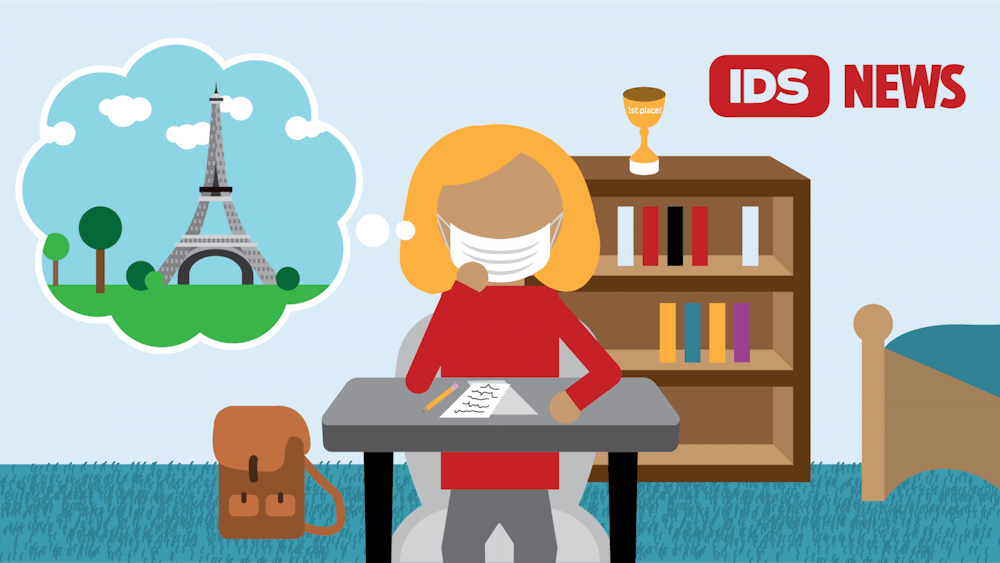From Budapest to Spain, IU students across the world enjoyed the start of the spring semester immersed in new cultures. But COVID-19 cut their trips short.
When coming back from level 2 and 3 countries, people should undergo 14 days of self-quarantine to monitor themselves for symptoms of the coronavirus , according to the Centers for Disease Control and Prevention.
Junior Taegan Myers, who studied abroad in Barcelona, was self-quarantining at her home in Virginia Beach, Virginia, after returning to the U.S. She said she was exposed to someone with the virus while abroad.
“It was in the best interest of me and my family and everyone in Virginia Beach to not be around them,” Myers said.
Myers said her family has been leaving her meals in another room for her to pick up later so they can avoid physical contact.
Junior Justin M. L. Freeman studied abroad in Budapest, Hungary, and said self-quarantining is hard because he shares a room with his nephew and sister. He also said his family responsibilities added to the difficulty.
“My nephew is 5 years old, and someone has to watch him and play with him, so I have to step up to the plate,” Freeman said. “I just have to hope that I’m not sick.”
Freeman said he’s also frustrated that his study abroad program is requiring students to take the virtual classes at the normal European time.
“I paid thousands of dollars to have life-changing experiences in Europe, not to take online classes at 1, 4 or 7 a.m.,” Freeman said.
The change has more adverse effects on economically disadvantaged students, especially because he's not getting reimbursed for the program, Freeman said.
Junior Sydney Dixon, who studied abroad in Spain, said some of her professors are requiring virtual class meetings, some of which occur at 8 a.m. Barcelona time. That is 1 a.m. in Houston, where she'll be living while taking her online classes.
“It is not a great learning environment for me,” Dixon said. “Completely changing my schedule is a lot to deal with, and it makes it hard to excel in my classes the way I’m supposed to.”
Dixon said some of her classes adjusted to the time difference challenge by conducting class through discussion posts or individual assignments she can do on her own time.
Some programs have eliminated virtual classes altogether. Myers said she was glad her Barcelona program through study abroad company IES Abroad isn’t requiring online classes. She said students complete weekly assignments and turn them in online.




